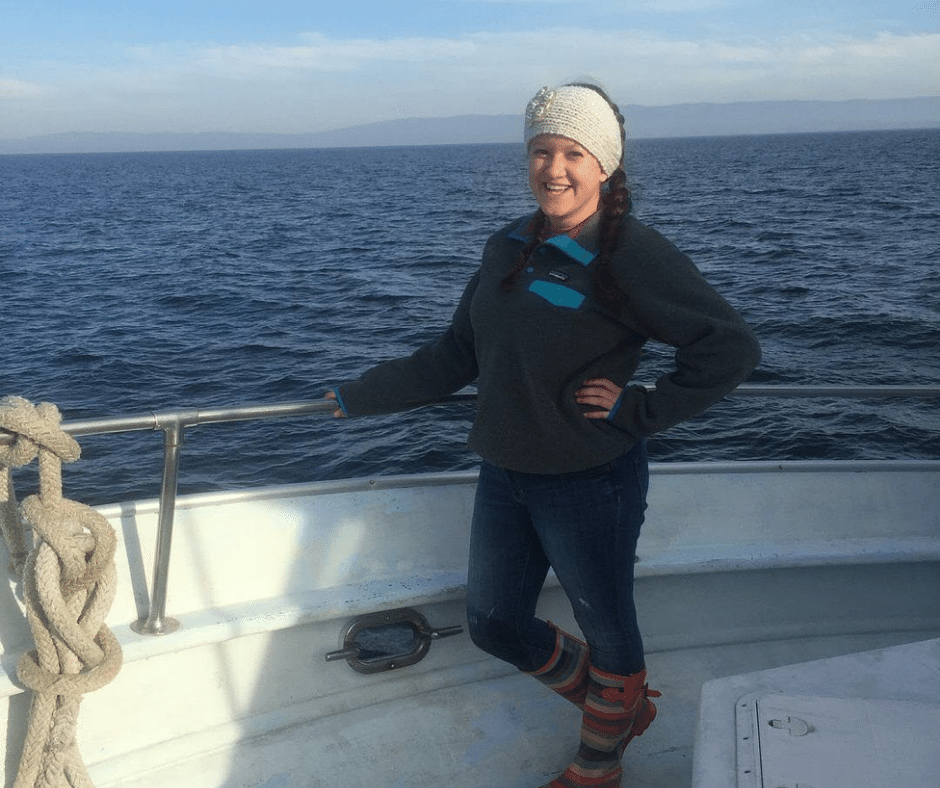
Meet Maine-eDNA: Emily Pierce, Graduate Research Assistant
Jane Horovitz, EPSCoR Student Writer
Emily Pierce has always been drawn to the ocean and the marine life within it. Pierce grew up in Reno, Nevada, quite a ways from the coast, but decided to study biology at Pepperdine University in Malibu, California, where she spent a lot of time on the ocean. Pierce recently finished her Masters degree at Moss Landing Marine Laboratories, where she studied environmental DNA (eDNA). However, she didn’t expect to move across the country to Maine in pursuit of a Ph.D.
Pierce met her current Ph.D. advisor, Dr. Markus Frederich, a researcher on Maine EPSCoR’s current Track-1 grant, Maine-eDNA, at a conference. After a conversation, he asked if she would be willing to consider Maine as the next location for her research. Pierce couldn’t say no.
Now that her application has been accepted, Pierce is an incoming Ph.D. candidate studying marine science through the University of Maine and University of New England and working with Maine EPSCoR on the Maine-eDNA project.
According to Pierce, the Maine-eDNA project provides a perfect continuation of her studies. While her Masters studies focused on how three specific molluscan species shed DNA and how long it lasts in the environment, she hopes to look at the larger picture through the Maine-eDNA project. Pierce will continue working with eDNA, but with invasive invertebrates on the Maine coast this time.
“It kind of plays really well off of my Masters thesis, because whereas [then] I was studying just three specific species, now I’ll be looking at a whole slew of different things. So, it’s a logical step up,” Pierce says.
She credits her high school biology teacher and undergraduate research advisor for inspiring and motivating her to pursue an education in STEM. Pierce claims both women were influential in getting her involved in scientific research. Pierce is now excited to serve as a mentor, herself. She hopes to serve a similar inspirational and motivational role for undergraduates and even Masters students.
“I don’t know everything, but I have some wisdom to pass on to them, and I’m really excited about the mentorship aspect,” Pierce says.
Before this project offer came up, Pierce was planning on working in education, especially since she had enjoyed working with the National Marine Sanctuary in the past, where she worked with elementary students from low-income neighborhoods.
“I would still like to keep that outreach in my back pocket as something that I like to do,” Pierce says. “But I think long term, I would love to teach and do research at the university level, while maybe taking my university students into classrooms in low income areas and getting kids excited about STEM.”
